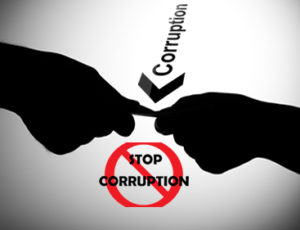The media should stage campaign against corruption
 The mass media is the primary means through which the public is educated, enlightened and shapes opinion.
The mass media is the primary means through which the public is educated, enlightened and shapes opinion.
The 1966 coup that ousted the first President- Dr Kwame Nkrumah, succeeded largely through the use of the media to announce the change in government.
The 2008 post-elections violence in Kenya was said to have been precipitated by longstanding historical issues played out through violence along ethnic lines.
However, the media were accused of wafting the flames.
In 1964, the Nigeria government media were used to announce that more than 50 per cent of the candidates of the ruling party in the Federal House of Representatives were returned unopposed without voting.
It is clear therefore that the media have positive and negative effect on the society.
One positive effect of the media is the effect on government efforts to end illegal mining popularly referred to as galamsey.
On March 23 there was a media report with a banner headline: “Graphic, GIBA, media to stop galamsey.”
Members of the coalition includes: The Private Newspaper Publishers Association (PRINPAG), Ghana Journalists Association (GJA), Ghana Broadcasting Corporation (GBC) and News Times Corporation.
The members came together to sensitise the public about the horrors of galamsey and seeks support to uproot the illegal miners from Ghana.
It is by this far I believe that, the fight against corruption can only be achievable if the media stage the same campaign against it as against the galamsey menace, to educate the public on the dangers of the act.
Those in the high offices and staging the many fights against corruption need to be aware of the power of the media to aid in the fight.
The media may not be at the fore front in the fight against corruption, however, their works are crucial in achieving the cultural change that must be accompanied by legislation to facilitate the institutional arrangements that are needed for the fight the canker.
The media are watchdogs, agenda setters, and gatekeepers that can monitor the quality of governance, set stages for the discussion of corruption, and as well as lend voice to a wide range of perspectives and arguments.
The media can be crucial in changing people’s beliefs about the prevalence and legitimacy of corruption.
It is widely believed that, every society is built on norms which are standards of expected behaviours and thus regulate the way we interact with each other and deal with issues.
The tendency of people accepting corruption, or standing up against it depends on whether they are aware that it is wrong.
It is therefore important that the media launches another campaign and this time not against some individuals or group of individuals but against every Ghanaian involved in corruption.
Source:GNA
